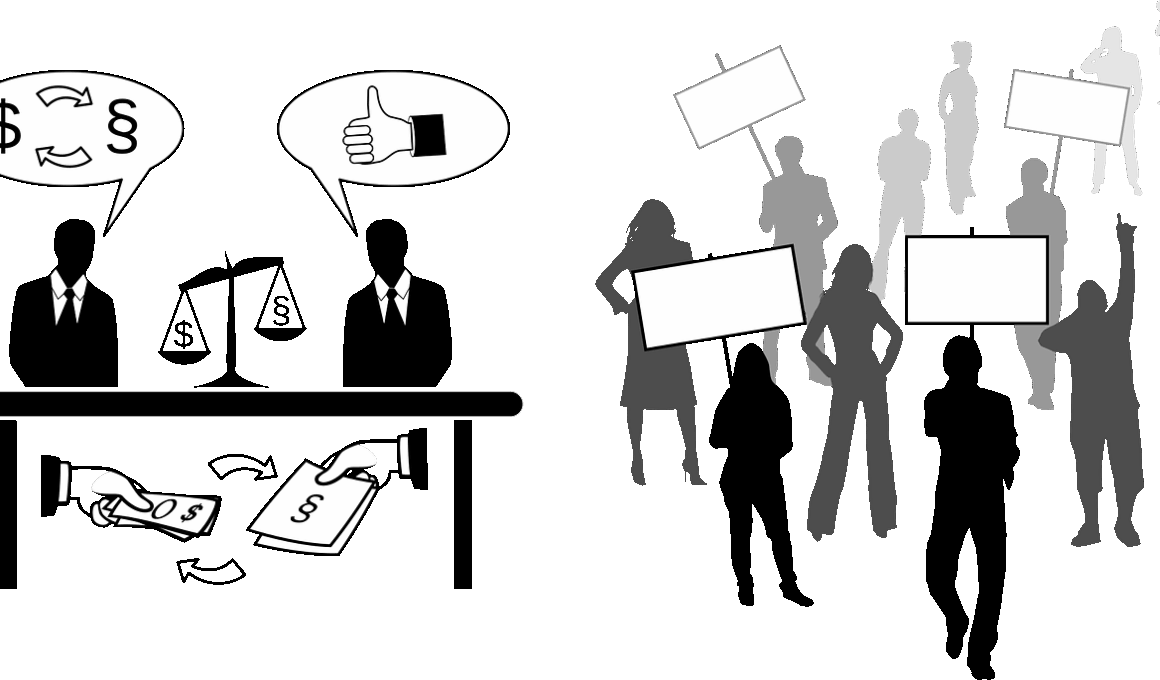The Impact of Bribery on Global Business Practices
The influence of bribery and corruption in the arena of global business practices cannot be understated. When corporations engage in corrupt behaviors to secure contracts or favors, they undermine trust and transparency in markets. This leads to uneven playing fields where ethical companies struggle to compete with dishonest ones. It’s essential to recognize how bribery distorts competition, affecting both local and international businesses. The costs associated with corruption are significant, extending beyond monetary losses to include reputational damage, legal repercussions, and a negative impact on company culture. Furthermore, bribery often results in substandard products and services due to unqualified vendors gaining contracts unfairly. Ultimately, the ripple effect can stifle innovation and limit market access for businesses that adhere to ethical standards. Companies can avoid these pitfalls by implementing robust compliance programs and fostering a culture of integrity within their organizations. Education about the risks and consequences of bribery can empower employees at all levels to make ethical choices, supporting a healthier business environment globally. By taking necessary steps, companies can contribute to a more transparent and equitable marketplace.
Globally, the consequences of bribery extend beyond individual businesses, affecting entire economies. In nations where corruption is rampant, economic growth stagnates because foreign investors hesitate to enter such uncertain environments. Businesses fear the unpredictable nature of corrupt practices, leading them to refrain from investing in markets where bribery is common. This withdrawal of investment results in job losses, reduced economic opportunities, and increased poverty for local populations. Moreover, corruption specifically harms public services, as funds meant for development initiatives often vanish through bribery. Citizens in these nations suffer from inadequate healthcare, education, and essential infrastructure services. Consequently, the overall quality of life declines, perpetuating a cycle of disadvantage and disenfranchisement. Anti-corruption initiatives need international cooperation to combat these issues effectively. Global organizations must work alongside local governments to create frameworks that promote accountability and transparency. This could involve enforcing strict penalties for corrupt activities while supporting efforts to educate businesses about ethical practices. By embracing a collaborative approach, we can work towards a sustainable economic model that prioritizes integrity and transparency, ultimately fostering a thriving global environment.
Corporate Responsibility and Ethical Standards
Corporate responsibility plays a crucial role in combating bribery and corruption across industries. Businesses must nurture an ethical climate, starting from the top management and cascading down to all employees. By establishing clear policies and expectations regarding ethical conduct, organizations can actively deter corrupt behaviors. A strong ethical culture empowers employees to refuse unethical requests and report suspicious activities without fear of retaliation. Companies should also regularly conduct employee training on recognizing and addressing bribery risks. Such education helps individuals understand their responsibilities and the severe repercussions of engaging in corruption. Additionally, organizations must develop mechanisms to monitor compliance with ethical standards and hold violators accountable. Transparency in operations helps build trust with stakeholders, enhancing corporate credibility. Effective whistleblower protections can encourage employees to report concerns, further strengthening the integrity of the company. Beyond internal measures, businesses should actively participate in industry-wide initiatives to promote ethical practices and share best practices. Collaborating with NGOs and government agencies can amplify impact and create a unified front against bribery and corruption, demonstrating corporate commitment to social responsibility and integrity.
The interplay between bribery and technological advancements can be complex in the modern business landscape. While technology often facilitates unethical practices, it also provides tools for monitoring and preventing corruption. For instance, digital payments can increase the traceability of transactions, making it harder for illicit movements of money to occur without detection. Businesses that leverage technology to enforce anti-corruption measures can significantly improve their compliance efforts. Implementing sophisticated software for risk evaluation can help in identifying potential corruption risks within operations and supply chains. Transparency techniques such as blockchain could create immutable records of transactions, thereby increasing accountability among all parties involved. However, organizations must remain vigilant, as tech-savvy corrupt practices can evolve rapidly. Cybersecurity risks pose significant challenges, with criminal organizations increasingly using digital methods to commit fraud and bribery. Therefore, it is essential to invest in ongoing employee education and technological innovations to create a proactive approach to anti-corruption. By blending technology with a commitment to ethical leadership, businesses can safeguard their operations against the dangers of bribery while enhancing their global reputation and fostering trust with stakeholders.
Legal Frameworks Against Bribery
The establishment of strong legal frameworks against bribery is integral to curbing corruption at a global scale. International treaties such as the United Nations Convention against Corruption (UNCAC) provide a baseline for countries to develop local laws that prohibit bribery and promote ethical conduct in business. However, the effectiveness of these frameworks largely depends on their enforcement and the political will of governments to eradicate corruption. Countries must adopt stringent penalties for those convicted of bribery, ensuring that the consequences outweigh any potential benefits gained from corrupt practices. Additionally, judicial systems need to be impartial and equipped to handle cases of bribery effectively. Collaboration between countries is vital, as corruption frequently crosses borders and affects global trade dynamics. Therefore, nations should work together to share intelligence and resources, implementing strategies that counteract bribery collectively. This includes establishing mutual legal assistance agreements and harmonizing anti-corruption legislation. By uniting efforts against corruption through strong legal frameworks, businesses can operate on equal grounds, fostering trust and facilitating a healthy business environment that prioritizes ethical practices.
Understanding the long-term implications of bribery on society as a whole is essential for rethinking business practices. In cultures where bribery is normalized, young professionals may adopt unethical behavior as typical, perpetuating a cycle of corruption. This is especially concerning when future leaders of businesses internalize these norms, maintaining and entrenching corrupt practices. Social trust deteriorates when corruption is widespread, limiting community engagement and reducing the overall quality of governance. Engaging in bribery can lead to decreased investments in education and social services, harming societal growth. To counter this trend, educational institutions must instill strong ethical foundations in students while emphasizing the importance of integrity and accountability in professional settings. Corporations can contribute by implementing internships and mentorship programs that emphasize ethical decision-making. Community outreach initiatives that address civic involvement can also help transform perspectives regarding ethics in governance. A societal commitment to ethics can create a ripple effect, influencing generations to pursue business practices devoid of bribery. By cultivating future leaders equipped with a strong moral compass, we can create a more equitable landscape that values honesty and transparency.
The Way Forward: Cultivating Ethical Business Practices
The future of global business requires a collective commitment to cultivating ethical practices that resist the allure of bribery and corruption. Addressing these issues necessitates ongoing dialogue among businesses, governments, and civil society. Collaboration can produce comprehensive solutions that promote transparency, accountability, and compliance with ethical standards. Organizations must prioritize sustainability and develop business models that consider their social impact and environmental responsibility. Transparent practices can enhance brand reputation, build customer loyalty, and cultivate lastingly positive relationships with stakeholders. Furthermore, equipping employees with the tools they need to navigate ethical dilemmas is crucial in maintaining integrity. Comprehensive training programs highlighting the significance of ethical behavior in organizational culture will empower employees to advocate for honesty. Lastly, engaging in community initiatives can demonstrate a commitment to societal well-being, strengthening public trust in businesses. By embracing a holistic approach to ethics, businesses can pave the way forward, creating a landscape where bribery and corruption have no place. The alignment of ethical practices with corporate strategy can yield long-term benefits, supporting sustainable growth and stability in a globalized economy.
The issue of bribery requires sustained efforts from diverse stakeholders within the global economy. Companies must go beyond compliance and pursue proactive measures that promote ethical business practices. This extended engagement can involve integrating ethics into corporate governance frameworks while aligning them with broader societal objectives. Establishing a global standard for ethical practices can serve as a roadmap for businesses aiming to navigate complex and diverse regulatory landscapes. It’s essential to recognize that ethical conduct is not merely an obligation, but a catalyst for innovation and competitiveness. Businesses that prioritize ethical considerations are better positioned to adapt to changing market dynamics and establish trust with consumers. Concerted efforts towards transparency can enhance brand value, paving the way for robust relationships with customers and stakeholders. Ethical behavior should be embedded in the corporate identity, reflecting a commitment to responsibly contributing to society. By collectively addressing bribery and corruption, we can reshape the fabric of global business practices, promoting an ecosystem where integrity thrives. Firms that embrace this ethos will not only benefit financially but will also leave a lasting positive footprint in their communities.


